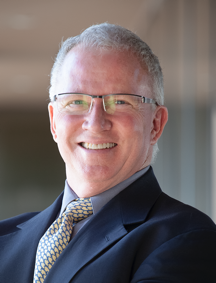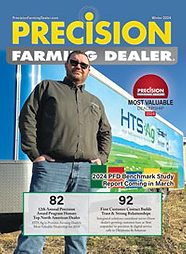Today, many farmers are introduced to precision agriculture through their equipment dealer. When someone purchases a Case IH tractor, it comes with a Trimble GPS system. If they buy a John Deere tractor, it comes with a Deere system. Regardless, farmers are told that each requires a separate network to access the necessary RTK corrections.
At a time when technology vendors in other areas are talking about openness and interoperability, there are those in the agricultural industry that want to protect their proprietary rights. Haley Harms, owner of Pro Till, a precision farming company, is looking to challenge that strategy with technology that helps break the chains, by taking a colorblind approach.
“Farmers spend a lot of money on activations and equipment to be able to receive that GPS signal, so to deliver it on a single network is exciting,” she says. “From my inception of Pro Till, that's exactly what I am — a colorblind dealer. I don't care what color your tractor or your system is. It has a basic database in it collecting information. From that point we can figure it out.”
It all started with a neighbor of hers. “He was the type that would research things himself to find what’s out there. He is a very innovative guy and he called me one day to say, “Oh, I have this bridge-modem thing that I am going to be using on Trimble’s network.” It was then I remembered that he didn’t have Trimble’s radio. This was something that I had to see for myself.”
The product that her neighbor had discovered was Intuicom’s RTK Bridge-X, an advanced communications hub providing a full array of connectivity ranging from Wi-Fi, Bluetooth, cellular, and Ethernet. The feature that stood out for Harms and her neighbor was the product’s ability to grab RTK corrections through the Internet where a typical cell phone wouldn’t connect.
Farmers who rely on radio transmission for their RTK corrections typically have to contend with line-of-sight issues. If there are low spots, and high spots, those can be problematic for radio waves.
“That’s their complaint with their current RTK network,” Harms says. “Behind this hill over here, and for this 128 acres of corn I plant every year, I'm on a network I pay $1,000 to be on and I can't get a signal.” Harms is quick to respond, “We go right through the cellular network just like a text message does, to deliver that RTK signal to your tractor cab.
“I've got one guy getting his signal over 50 miles away. It's RTK-fixed and I think it’s due to the vast flatness out there. We're getting satellites all the way down on the horizon, so we have enough satellites to maintain that correction over that kind of distance.”







Post a comment
Report Abusive Comment